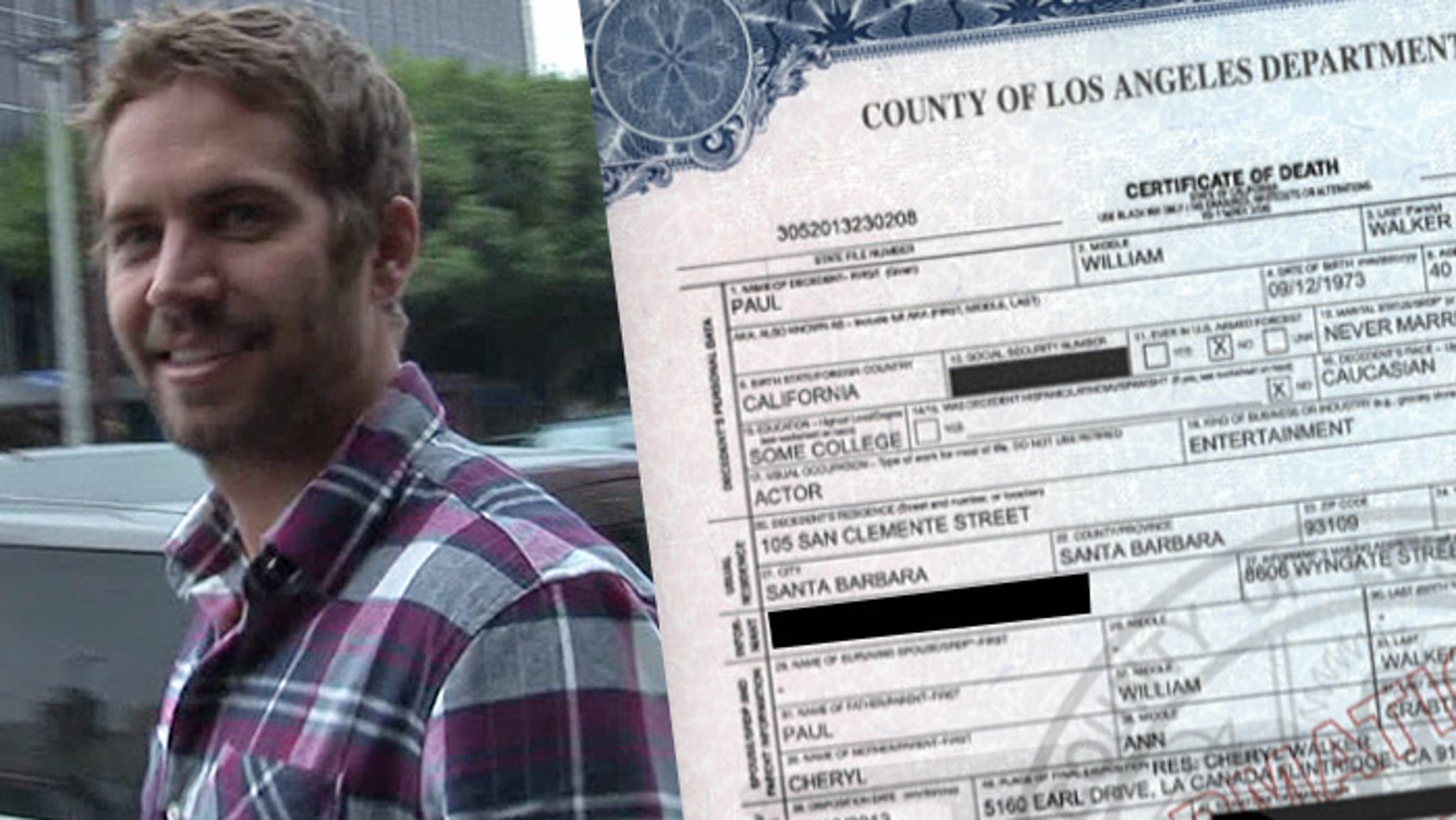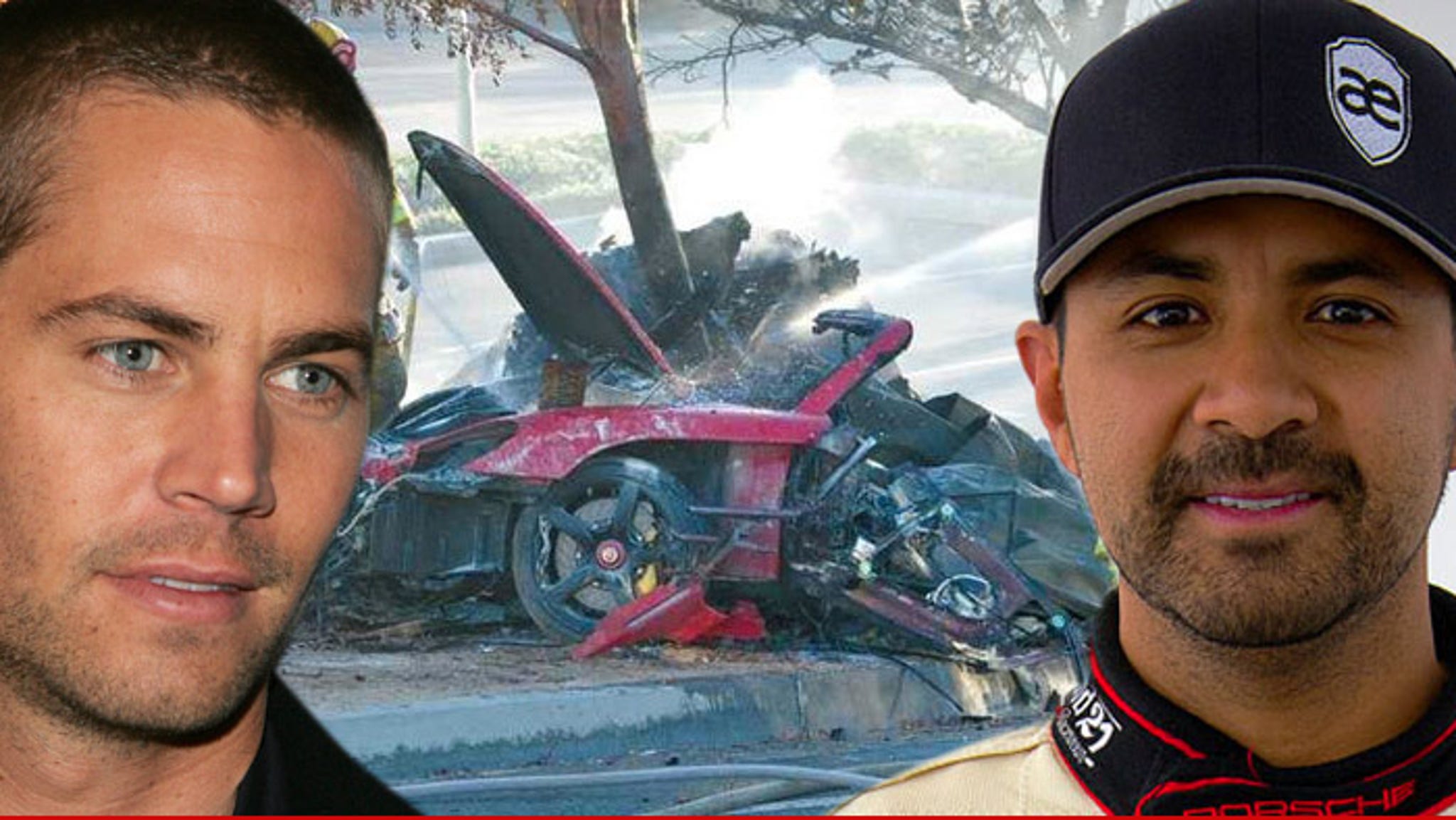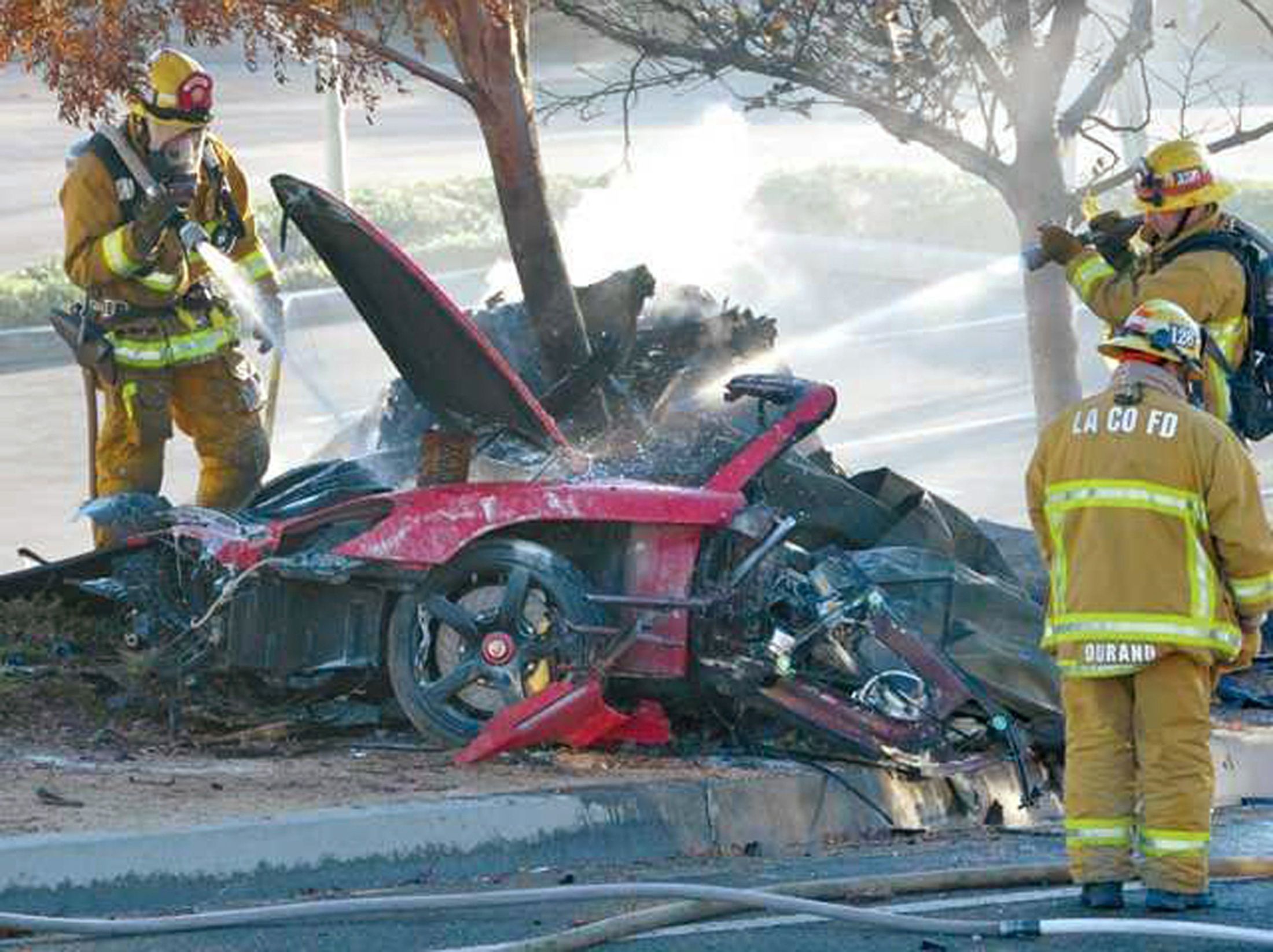Exclusive Insight: Pictures Of Paul Walker Death – The Untold Truth
Let me paint you a picture. Paul Walker, the charismatic actor who lit up the Fast and Furious franchise, left an indelible mark on fans worldwide. But his untimely passing in 2013 sent shockwaves through the entertainment world and beyond. Today, we dive deep into the infamous pictures of Paul Walker's death, uncovering facts, controversies, and the emotional aftermath that followed.
Now, before you scroll any further, let’s set the stage. This isn’t just another sensationalized story. We’re here to give you the real deal, the raw truth, and the human side of what happened that fateful day. The world lost a star, but his legacy lives on, and understanding this tragedy is part of honoring his memory.
There’s a lot of noise out there about Paul Walker’s death, from conspiracy theories to heart-wrenching tributes. In this article, we’ll sift through the facts, explore the impact on his family and fans, and touch on the ethical questions surrounding the release of these pictures. Let’s get started, shall we?
- Pictures Of A Teeth The Ultimate Guide To Understanding And Appreciating Dental Wonders
- Luisa Danbi Grierkim Rising Star Of The Digital Age
Biography: Who Was Paul Walker?
Before we delve into the specifics of the pictures of Paul Walker’s death, it’s essential to know the man behind the legend. Born on September 12, 1973, in Glendale, California, Paul William Walker IV was more than just a Hollywood heartthrob. He was a devoted father, a passionate philanthropist, and a true-blue gearhead.
Early Life and Career
Growing up in a family with deep roots in the entertainment industry, Paul’s journey to stardom began early. He made his acting debut at just five years old, appearing in several TV commercials. Over the years, he honed his craft, landing roles in TV shows like "The Young and the Restless" and movies like "Eight Below" and "Varsity Blues." But it was his role as Brian O’Conner in the Fast and Furious franchise that skyrocketed him to global fame.
Personal Life and Legacy
Beyond the silver screen, Paul was known for his humility and kindness. He founded the charity Reach Out Worldwide, which provided disaster relief globally. His daughter, Meadow, remains a proud testament to his legacy, often speaking about her father’s influence in her life.
- Nicole Kidman Toes The Glamorous Side Of Feet Fashion
- Why Donald Trump Smile Is More Than Just A Grin
Here’s a quick snapshot of Paul Walker’s life:
| Full Name | Paul William Walker IV |
|---|---|
| Date of Birth | September 12, 1973 |
| Place of Birth | Glendale, California |
| Family | Daughter: Meadow Walker |
| Known For | Fast and Furious franchise, Reach Out Worldwide |
Pictures of Paul Walker Death: The Incident
Alright, let’s address the elephant in the room. On November 30, 2013, Paul Walker’s life tragically ended in a high-speed car crash in Santa Clarita, California. The Porsche Carrera GT he was riding as a passenger in veered off the road and collided with a tree and a light pole, causing a massive fireball. The driver, Roger Rodas, was also killed instantly.
The Aftermath: What Happened Next?
In the chaos that followed, authorities scrambled to piece together the events leading to the crash. Autopsies confirmed that both Walker and Rodas died from traumatic injuries and burns. The investigation revealed that the car was traveling at speeds exceeding 100 mph, raising questions about safety and responsibility.
Now, here’s the kicker. Pictures of Paul Walker’s death began circulating online almost immediately, sparking outrage and debate. Some argued that releasing these images was a violation of privacy, while others saw it as a necessary part of understanding the tragedy.
Controversy Surrounding the Pictures
Let’s talk about the elephant in the room again—those pictures of Paul Walker’s death. They’ve been a source of controversy ever since they hit the internet. But why? Well, it’s not just about the images themselves; it’s about the ethics of sharing such graphic content.
Why Were These Pictures Released?
Here’s the deal. Some of the pictures were leaked by first responders, while others were obtained by media outlets through questionable means. The argument for their release was that they provided critical evidence in the investigation. However, many fans and family members felt betrayed by the invasion of privacy.
Impact on Fans and Family
Imagine being a fan who idolized Paul Walker, only to see those graphic images online. It’s gut-wrenching, right? For his family, the emotional toll was unimaginable. In response, Meadow Walker and others have spoken out against the exploitation of tragedy for clicks and views.
Legal Battles and Ethical Dilemmas
The release of pictures of Paul Walker’s death wasn’t without consequences. Several lawsuits were filed against individuals and organizations involved in their dissemination. But the bigger question remains—where do we draw the line between public interest and personal privacy?
Legal Actions Taken
Some first responders were disciplined or fired for leaking the images. Meanwhile, media outlets faced backlash and legal action from Paul’s family. The case highlighted the need for stricter regulations around the handling of sensitive materials.
What Does This Mean for Us?
As consumers of information, it’s crucial to think critically about the content we consume. Do we really need to see those pictures of Paul Walker’s death? Or is it time to prioritize respect and empathy over sensationalism?
Investigating the Crash: What Went Wrong?
Let’s zoom in on the details of the crash itself. According to the National Transportation Safety Board (NTSB), the high-speed nature of the crash was the primary factor in the tragedy. The Porsche Carrera GT, while a high-performance vehicle, lacked certain safety features that could have mitigated the impact.
Speed: The Silent Killer
Experts estimate that the car was traveling at over 100 mph at the time of impact. At such speeds, even the most advanced safety systems struggle to protect occupants. This raises questions about responsible driving and the role of speed in accidents.
Vehicle Safety: Lessons Learned
The crash also brought attention to the importance of vehicle safety standards. Manufacturers have since improved safety features in high-performance cars, but the lesson remains clear—speed kills, and caution is key.
Remembering Paul Walker: Tribute and Legacy
As we reflect on the tragedy of Paul Walker’s death, it’s important to remember the man he was and the legacy he left behind. From his work in the Fast and Furious franchise to his humanitarian efforts, Paul’s impact on the world is undeniable.
Fast and Furious: A Lasting Legacy
The Fast and Furious franchise became a tribute to Paul Walker after his passing. The cast and crew dedicated the seventh film to his memory, capturing his essence in every frame. Fans around the world continue to celebrate his contributions to the series.
Reach Out Worldwide: Continuing the Mission
Paul’s charity, Reach Out Worldwide, continues to thrive, providing aid and support to communities in need. His daughter, Meadow, has taken up the mantle, ensuring that his vision of a better world lives on.
Impact on Pop Culture
Paul Walker’s death left a lasting mark on pop culture. From tributes in movies and TV shows to memorials around the world, his influence is felt in countless ways. But how has this tragedy shaped our understanding of celebrity and mortality?
Celebrity Culture and Tragedy
The rapid spread of pictures of Paul Walker’s death highlights the darker side of celebrity culture. In an age of instant information, it’s easy to forget that these figures are human beings with families and feelings. The challenge lies in finding a balance between public interest and personal dignity.
Media Responsibility
Journalists and content creators play a pivotal role in shaping public perception. By prioritizing ethics and empathy, we can ensure that tragedies like Paul Walker’s death are handled with the respect they deserve.
Psychological Effects on Fans
For many fans, seeing pictures of Paul Walker’s death was a traumatic experience. It forced them to confront the harsh realities of life and death, often leaving lasting emotional scars. But how do we process such events in a healthy way?
Coping with Loss
Experts recommend finding healthy outlets for grief, such as talking to friends, engaging in creative expression, or supporting causes aligned with the deceased’s values. For fans of Paul Walker, this might mean contributing to Reach Out Worldwide or simply remembering the joy he brought to their lives.
Building Resilience
Tragedy can be a catalyst for growth. By learning from these experiences, we can build resilience and empathy, becoming better versions of ourselves. It’s a lesson Paul Walker himself would have appreciated.
Conclusion: Moving Forward with Respect
In conclusion, the pictures of Paul Walker’s death serve as a stark reminder of the fragility of life and the importance of respect. While the controversy surrounding their release continues, it’s crucial to focus on the positive impact Paul had on the world.
So, here’s the call to action: honor Paul Walker’s memory by supporting causes he cared about, treating others with kindness, and thinking critically about the content we consume. Share this article with your friends, leave a comment below, and let’s keep the conversation going. Together, we can make a difference.
Table of Contents
- Biography: Who Was Paul Walker?
- Pictures of Paul Walker Death: The Incident
- Controversy Surrounding the Pictures
- Legal Battles and Ethical Dilemmas
- Investigating the Crash: What Went Wrong?
- Remembering Paul Walker: Tribute and Legacy
- Impact on Pop Culture
- Psychological Effects on Fans
- Conclusion: Moving Forward with Respect
Article Recommendations
- Unveiling The Truth A Deep Dive Into Monroe Death Photos
- Michael Wilding The Forgotten Hollywood Heartthrob



Detail Author:
- Name : Janie Donnelly
- Username : marvin.naomie
- Email : bbotsford@dooley.net
- Birthdate : 1993-02-10
- Address : 45903 Benedict Views Vickychester, IN 27673-9582
- Phone : (305) 623-7361
- Company : Gaylord-O'Conner
- Job : Hotel Desk Clerk
- Bio : Nemo voluptate quaerat qui temporibus aliquam eveniet in. Ullam animi dicta doloremque sit odio dolor. Consequatur pariatur dolores dicta reprehenderit assumenda sequi omnis et.
Socials
linkedin:
- url : https://linkedin.com/in/dortha.schimmel
- username : dortha.schimmel
- bio : Dignissimos molestiae nemo asperiores et.
- followers : 3180
- following : 1537
tiktok:
- url : https://tiktok.com/@schimmel2011
- username : schimmel2011
- bio : Ratione accusamus est aut voluptas. Cum non fugiat quia ut in ad.
- followers : 4864
- following : 1667